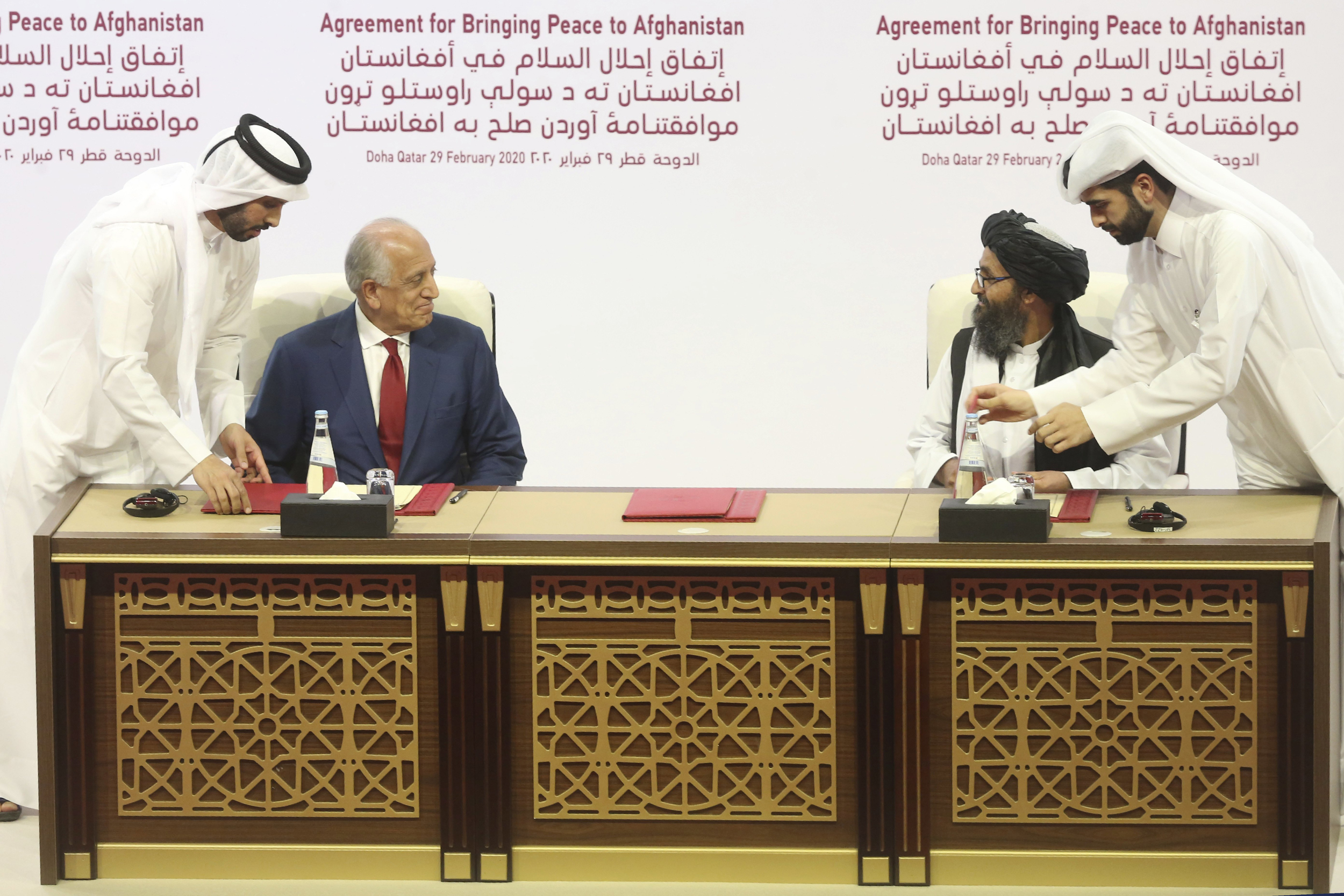The text of the Deal is available with The Truth International, which is being reproduced completely here. The deal is dated 28-02-2021.
The following discussion draft of a peace agreement is intended to jumpstart Afghanistan Peace Negotiations between the Islamic Republic and the Taliban. It sets forth principles for
governance, security, and rule of law and presents options for power sharing that could help the two sides reach a political settlement that ends the war. The draft reflects a variety of ideas and priorities of Afghans on both sides of the conflict and is intended to focus the negotiators on some of the most fundamental issues they will need to address. Ultimately, the two sides will determine their own political future and the contours of any political settlement.
AFGHANISTAN PEACE AGREEMENT
The following Peace Agreement between the two sides to Afghanistan Peace Negotiations is
made in three parts. First are agreed guiding principles for Afghanistan’s Constitution and the
future of the Afghan State. Second are agreed terms for governing the country during a
transitional period of no more than [xx] months and a roadmap for making Constitutional
changes and addressing security and governance matters critical to a durable and just settlement. Third are agreed terms for a permanent and comprehensive ceasefire and its implementation
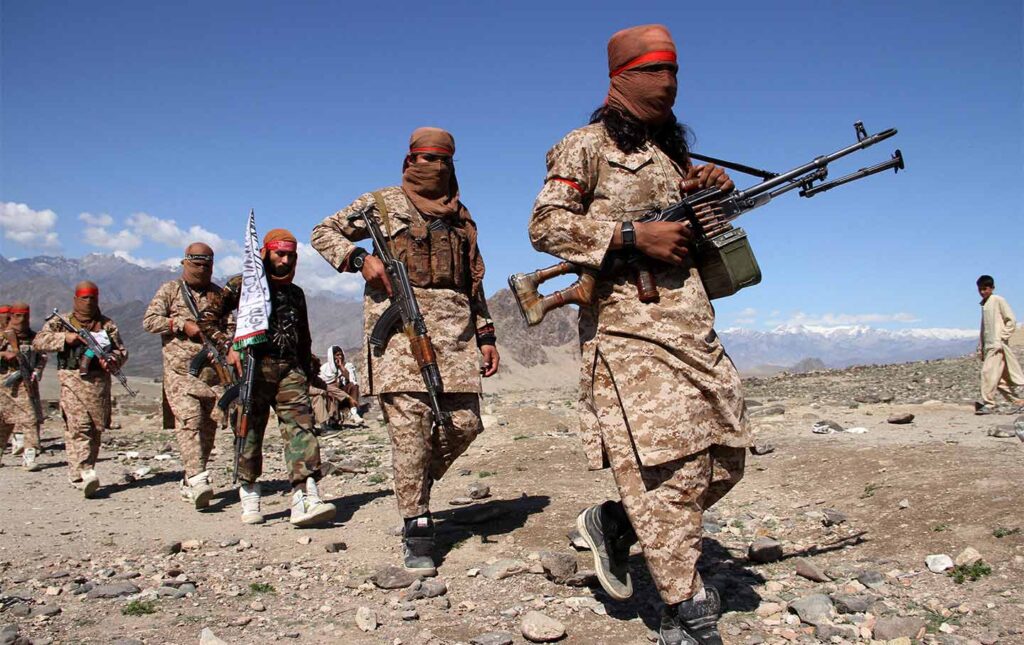
Part One: Guiding Principles for Afghanistan’s Future
- The two sides agree on the following principles to guide the outcome of their talks and to serve as the basis of a new Constitution and of the Afghan State:
- Afghanistan’s official religion will be the holy religion of Islam. A new High Council for
Islamic Jurisprudence shall be established to provide Islamic guidance and advice to all
national and local government structures. - The ability of all Afghans to live peacefully will be paramount. Afghanistan will be a safe
home for all of its ethnic groups, tribes, and religious sects. The safe, dignified, and voluntary return of refugees and internally displaced persons will be prioritized. - The dignity, life, and property of all Afghans, as well as the protection of their civil, political,
economic, social and cultural rights – including the rights to free speech and to choose their political leaders – will be respected and enshrined in the future Afghan Constitution. The future Afghan state will respect and uphold the will of the people, Islamic values, social and political justice, national unity, and the sovereignty and integrity of Afghanistan’s territory. - The future Constitution will guarantee the protection of women’s rights, and the rights of
children, in political, social, economic, educational, and cultural affairs. - Afghanistan’s national entities and other public bodies – including educational and security institutions – will be recognized and strengthened as national assets that belong to and benefit all Afghans. This includes providing for the security of, and support to, public infrastructure, including schools, madrassas, hospitals, markets, dams, and other public offices.
- The future Afghan state will honor and support all victims of the past 42 years of conflict,
especially the wounded, orphans, widowed, and disabled. A national policy of transitional
justice will be developed that focuses on truth-seeking, reconciliation, healing and forgiveness in accordance with applicable Afghan and international law.
- Afghanistan will seek commitments from the international community to support and assist in the rebuilding and reconstruction of the country.
- Afghanistan will have a non-aligned foreign policy and will seek friendly relations with all
countries and the international community. Afghanistan will adhere to international law,
including treaties to which it is a party. No one will be allowed to use the soil of Afghanistan to threaten the security of Afghanistan’s neighbors or any other country. Afghanistan will insist that all countries not interfere in its internal affairs. - The 2004 Constitution will be the initial template from which the future Constitution will be
prepared. - The future Constitution will provide for free and fair elections for Afghanistan’s national
political leadership in which all Afghan citizens have a right to participate. Ultimate authority to take decisions of paramount national importance will rest with the country’s elected government officials. - The future Constitution will set forth the structure of government and the balance of power among the different branches of national government and between the national and local levels of government.
- Ultimate authority to resolve constitutional and other legal disputes – including over the
interpretation of Islamic law – shall rest with the independent judiciary. The High Council for Islamic Jurisprudence shall have a role in advising the judiciary. - Afghanistan will adhere to the highest standards of accountability and transparency and shall take all necessary steps to fight corruption and to counter the scourge of illicit narcotics.
- The future Constitution will establish a singular, unified and sovereign Afghan state under a single national government, with no parallel governments or parallel security forces.
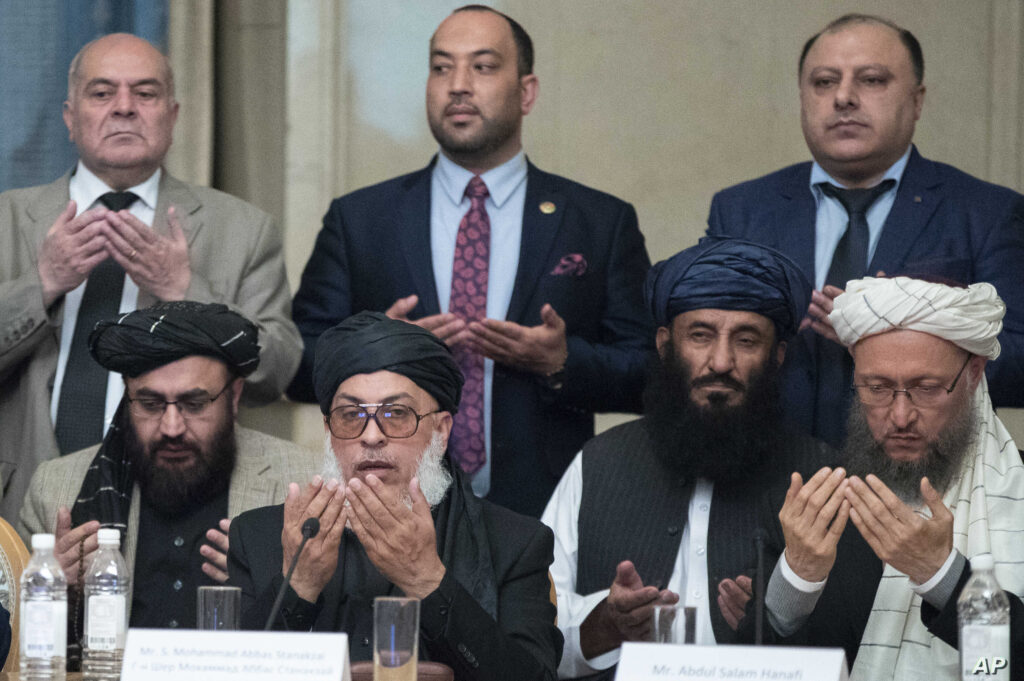
Part Two: Transitional Peace Government and Political Roadmap
I. General Provisions
A) A transitional Peace Government of Afghanistan shall be established as of the date of this
Agreement. The Peace Government shall exist until it transfers power to a permanent
Government following the adoption of a new Constitution and national elections. This transfer of power shall occur no later than [xx] months from the date of this Agreement.
B) The Peace Government shall include the following separate and co-equal governing branches:
(1) an Executive Administration; (2) a National Shura; and (3) a Judiciary with a Supreme Court and lower courts. It shall also include a High Council for Islamic Jurisprudence and a
Commission to Prepare a New Constitution.
C) All appointments to the Peace Government shall be made according to the principle of equity between the two Parties to this Agreement, with special consideration for the meaningful inclusion of women and members of all ethnic groups throughout government institutions.
D) The following legal framework shall be applicable throughout Afghanistan until the adoption of new Constitution: (1) Afghanistans current Constitution, to the extent its provisions are not inconsistent with this Agreement; and (2) Afghanistans existing laws, decrees and regulations –
provided that the Peace Government shall have the power to amend or repeal such laws, decrees and regulations – or any new laws, decrees and regulations adopted by the Peace Government, to the extent they are not inconsistent with (a) this Agreement, (b) Afghanistan’s international legal obligations or (c) applicable Constitutional provisions.
E) Subject to Afghanistan’s international legal obligations, members of the Parties, including
their forces, will not be prosecuted for treason or other political crimes, as defined by the two
Parties, during the tenure of the Peace Government in order to promote national reconciliation.
F) The Peace Government shall represent Afghanistan in its external relations, including at the United Nations and other international institutions and conferences.
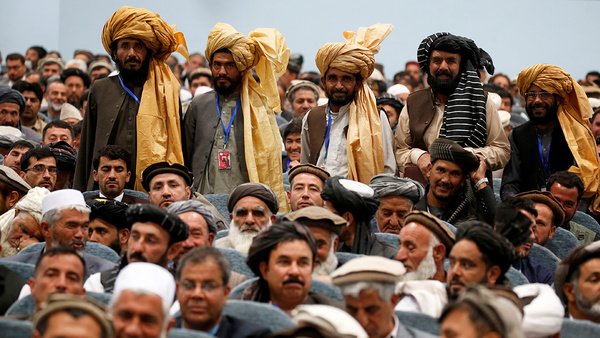
II. The Executive Administration
A) Governance. The Executive Administration of the Peace Government shall be entrusted with the day-to-day conduct of the affairs of the State and its President shall have the right to issue decrees and orders for the peace, stability, and good governance of Afghanistan.
B) Composition.
Option (1): The Executive Administration shall consist of a President, [xx] VicePresidents, cabinet ministries, independent directorates, and other bodies.
Option (2): The Executive Administration shall consist of a President, a Prime Minister,
[xx] Vice- Presidents, [yy] Deputy Prime Ministers, cabinet ministries, heads of independent directorates, and other bodies.
**Note: This document sets forth a roadmap pursuant to Option (1) above. If the
Parties choose Option (2), this document will need modifications to set forth the
respective authorities of the President and Prime Minister.
The President and Vice Presidents [and cabinet] are named in Annex A, were selected
based on agreement between the two Parties and are acceptable to both sides. The
President [and Vice Presidents] shall only serve during the tenure of the Peace
Government and shall be precluded from serving at any point in the future as Head of
State or Head of Government in Afghanistan. The President and Vice Presidents may
only be removed according to procedures in the current Constitution.
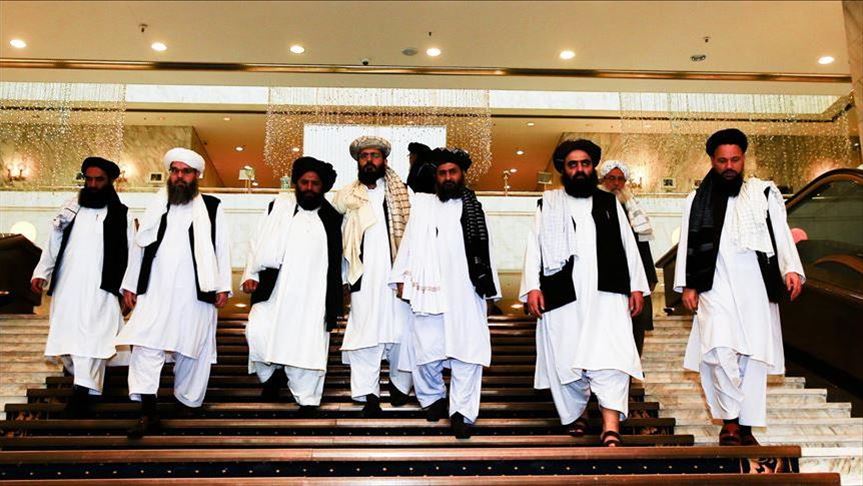
C) Security. The President serves as Commander-in-Chief of the Armed Forces. Under the
President’s authority, the Executive Administration will be responsible for internal and external security in Afghanistan and shall exercise command and control over all units of the armed forces. The President will establish a Joint Military & Police Board, which will include
representatives from both Parties to this Agreement, to make necessary adjustments to the chain of command structure and propose other security sector reforms, including policies on
integration of forces.
D) Foreign Relations. The President shall lead Afghanistan’s foreign relations. The Peace
Government commits (i) to a policy of non-alignment and non-interference in the affairs of other countries, (ii) not to host terrorists nor to permit any terrorist-related activity on its soil that poses a threat to any other country, (iii) to seek positive relations with the international community to help with Afghanistan’s reconstruction, and (iv) to increase cross-border trade and investment.
E) Joint Committees. Within [xx days] of this Agreement taking effect, the Executive
Administration will establish Joint Committees, with equitable representation of the two Parties to this Agreement, to develop national policies on other issues critical for peace, including (i) transitional justice, with an emphasis on the rights of victims on both sides, truth and reconciliation; (ii) rehabilitation, livelihoods and reintegration of former combatants; (iii)
economic development; (iv) counter-narcotics; (v) refugees and displaced persons; (vi)
traditional dispute resolution; and (vii) any other issues as deemed necessary.
The Afghanistan Independent Human Rights Commission established pursuant to the current
Constitution shall remain intact and will be expanded to include [Taliban representation] [x
members appointed by the Taliban].
III. The National Parliament
Option (1): A bicameral National Shura shall be composed of: (1) a [xxx]-member lower
house, including the 250 members of the current Wolesi Jirga and [xx] additional members to be named by the Taliban; and (2) a [xxx] member Senate, including (i) 34 Senators representing each of the respective provincial councils; (ii) [xx] Senators chosen by the Islamic Republic side; and (iii) [xx] Senators chosen by the Taliban. New members of Parliament shall be named within [xx] days of this Agreement taking effect. Authorities for the National Shura include those powers enumerated for Parliament in the current Constitution. It shall follow existing Parliamentary rules.
Parliamentary decisions of paramount national interest, as defined by the Parties, need
approval of [xx%] of the Wolesi Jirga members and [yy%] of the Senators.
This Parliament’s term shall expire at the end of the Peace Government’s term and
following elections for a new legislature.
Option (2): Parliament shall be suspended during the tenure of the Peace Government
with legislative authority transferred to the Executive Administration. Members of
Parliament shall retain their respective benefits, rights and immunities during the period
of suspension
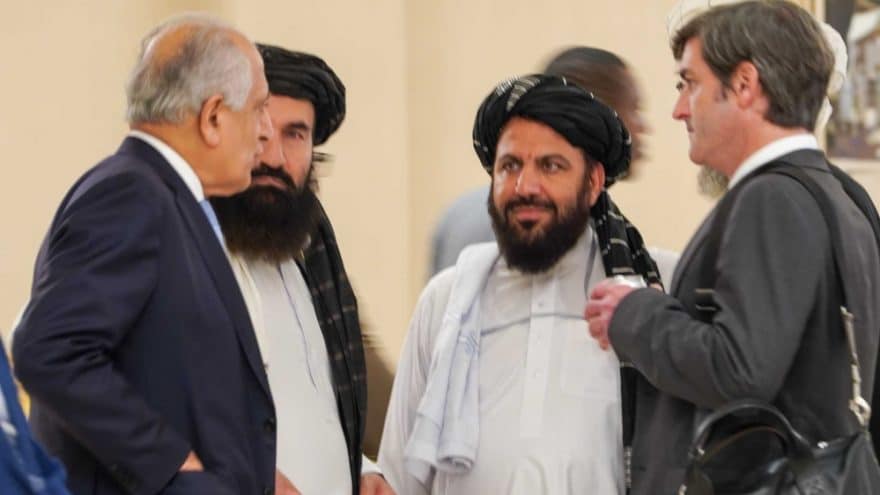
IV. The Judiciary
The judiciary of Afghanistan shall be independent and comprised of a [xx]-member Supreme
Court and other appellate and lower courts established by law. Each side shall name [yy]
members of the Supreme Court, with the President naming the final member. Its members are listed in Annex B. It shall include independent religious and contemporary legal scholars. Its rules of procedure shall be set internally. Supreme authority to interpret the current Constitution, the provisions of this Agreement and other existing laws of Afghanistan, and to issue final, binding decisions in Constitutional and other legal disputes, including disputes related to Islamic law, rests with the judiciary. The Independent Commission for Oversight of the Implementation of the Constitution, established under the current Constitution, will serve in an advisory capacity to the Supreme Court.
Non-State, customary and traditional resolution of civil disputes shall be permissible and
promoted so long as consistent with Afghan State law, including its protections for women’s
rights and other individual rights as well as applicable international laws. The State has exclusive jurisdiction over criminal matters.
V. The High Council for Islamic Jurisprudence
A fifteen-member High Council of Islamic Jurisprudence (the “Islamic Council”) shall be
established within [xx] days of this Agreement, to provide Islamic guidance on social, cultural,
and other contemporary issues. Each side shall name seven members of the Islamic Council, with the President naming the fifteenth. It shall also review all draft laws, decrees and regulations prior to adoption to ensure compliance with the beliefs and provisions of Islam. In cases where the Islamic Council and the Supreme Court disagree on Islamic law, a joint reconciliation session shall convene. If a resolution is not reached, the Supreme Court’s position is final and binding.
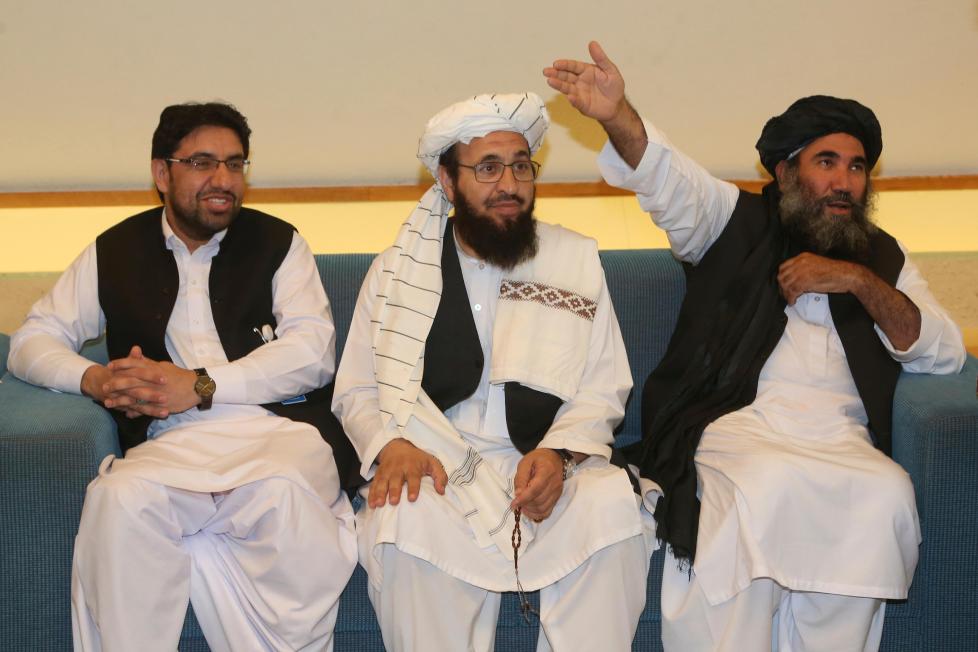
VI. State Leadership Council
A State Leadership Council consisting of the President, the Vice Presidents, the Speakers of
Parliament, the Chief Justice and the head of the Islamic Council, along with [xx] other influential figures to be chosen by the President [with the unanimous concurrence of the
Vice Presidents], shall meet on matters of national importance to provide guidance and advice to the Peace Government.
VII. Sub-National Government Structures
A) Executive Administration. The President shall appoint all Provincial Governors and other
heads of provincial offices [from lists of candidates provided by the Provincial Councils]. [The
President will also] [Provincial governors will] appoint mayors, district governors and other
heads of district offices [throughout the country] [in their respective provinces]..
B) Provincial Councils.
Option (1): Provincial Council membership shall be expanded by [xx%], with the
Taliban appointing the new members, in the following provinces: [xxxxxxxx]. New
members shall be chosen with special consideration for women and
representative balance across demographic groups in each respective province.
Option (2): Provincial Councils shall be suspended pending adoption of a new
Constitution, and their authorities shall be transferred to the respective provincial
governors. Its members shall retain their respective benefits, rights and immunities during
the period of suspension.
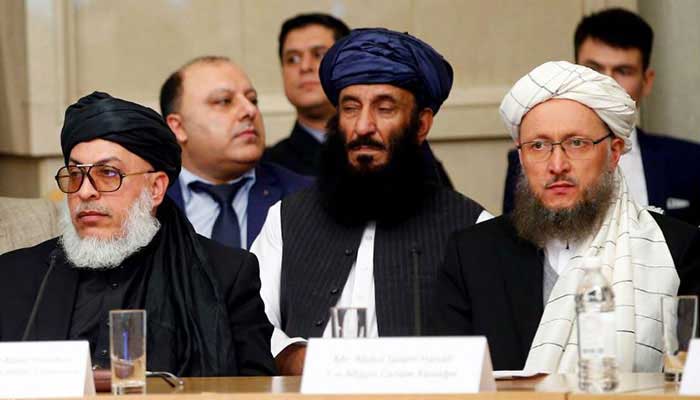
VIII. The New Constitution
A [21]-member Commission for the Preparation of a New Constitution will be established within 30 days of this Agreement taking effect, with [10] members named by each Party to this Agreement and the President naming the [21st] member. Members of the Constitutional
Commission will include both Islamic and contemporary legal experts. This Commission will
prepare a draft Constitution after widespread consultation and present a final draft to a
national Loya Jirga (“LJ”) for final debate and ratification within [xx] months. The composition
of the LJ will be set by the Constitutional Commission in consultation with the Executive
Administration and National Shura. The new Constitution will be consistent with the guiding
principles agreed in Part One of this Agreement.
IX. Elections
All elections to be held pursuant to the current Constitution are cancelled during the tenure of the Peace Government. [An Afghan election commission will be established to administer] [An international election management body will be invited to administer] free and fair national elections following the ratification of a new Constitution. These elections will be held pursuant to the new Constitution, other applicable laws and procedures, and in accordance with the guiding principles agreed in Part One of this Agreement.
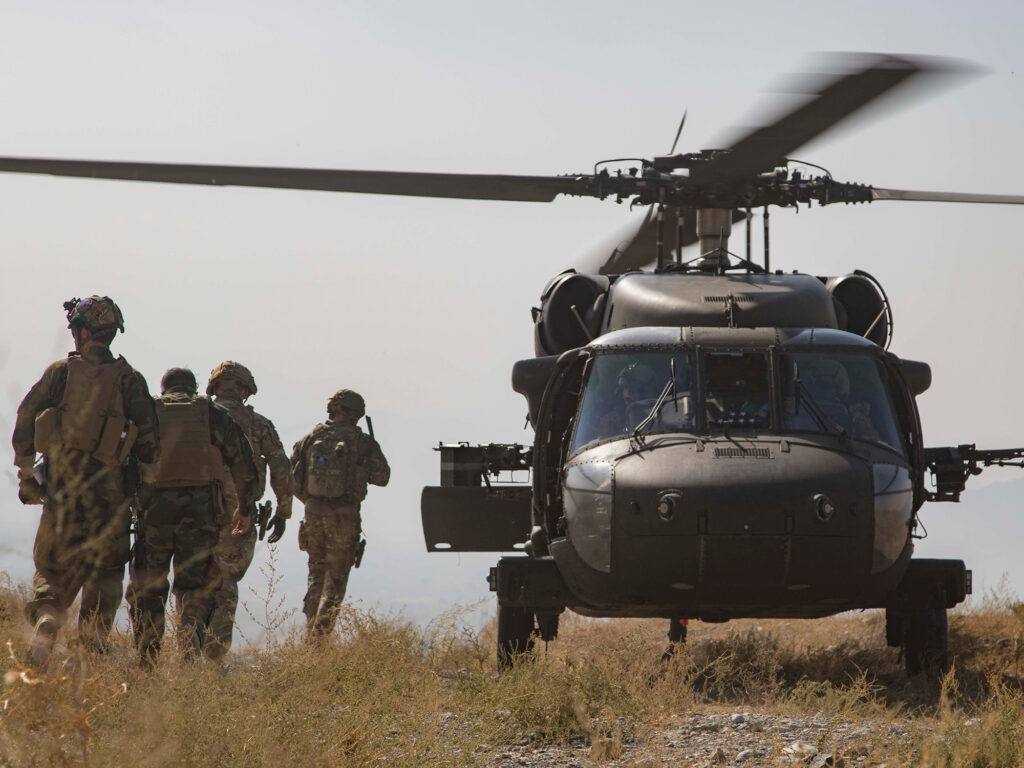
Part Three: Permanent and Comprehensive Ceasefire
I. Ceasefire Terms
A) Each side shall immediately announce and implement [within xx hours] an end to all military and offensive operations and hostile activities against the other. Neither party shall, under any circumstance, proactively attack individuals or units associated with the other. If either party takes action against the other in perceived self-defense, it shall immediately seek to deescalate and report the action to the Ceasefire Commission. The Peace Government agrees to counter any armed opposition to implementation of this Agreement and to take any other necessary steps to prevent a resumption of hostilities between the two sides.
B) Other forbidden provocations short of violence shall include: (a) massing of forces not
authorized by the Executive Administration, (b) setting up of similarly unauthorized checkpoints, (c) abuses or harassments of local populations, (d) the denial of citizens’ freedom of movement, (e) the planting of landmines or other dangers to civilians, (f) unnecessary patrols, (g) threats of force or (h) other actions reasonably deemed a threat by the other side to the peace and security of Afghanistan.
C) The Taliban agree to remove their military structures and offices from neighboring countries, and they agree to end military relations with foreign countries. Also, the Taliban commit that they will not expand their force configurations nor recruit new fighters.
D) Both sides agree to cooperate with relevant officials of the Peace Government, including the Joint Military and Police Board established by the President, on the successful implementation of the ceasefire and related security sector reforms, including the integration of forces.
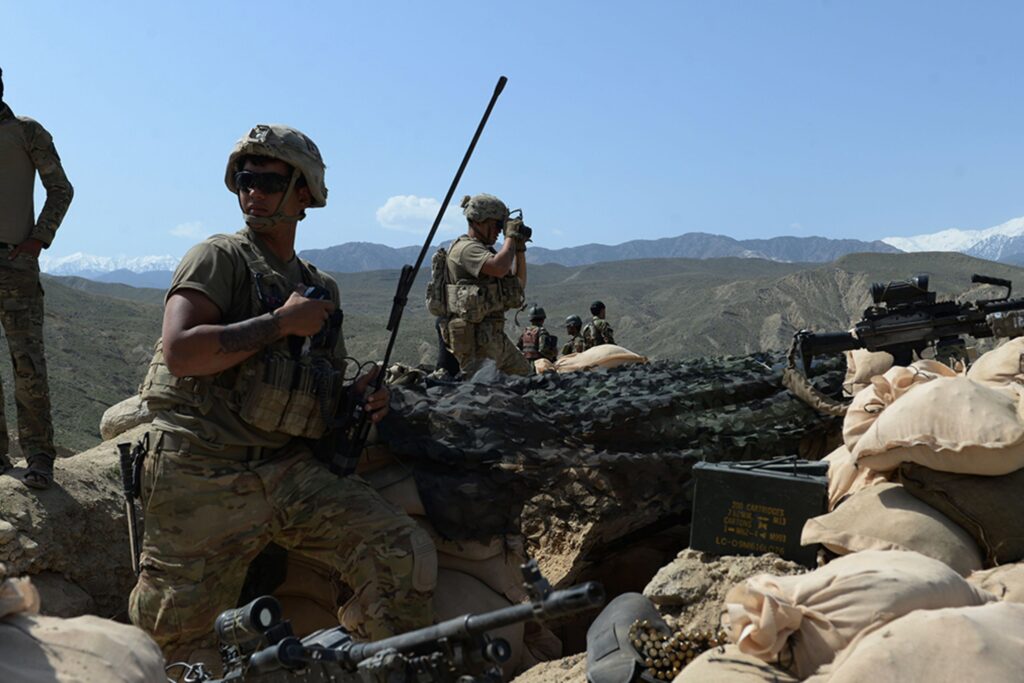
II. Ceasefire Monitoring and Implementation
A) A Joint Ceasefire Monitoring and Implementation Commission (the “Ceasefire Commission”) shall be immediately established to monitor the ceasefire and investigate disputes, incidents or alleged violations. The Ceasefire Commission will be made up of 9 members, 4 appointed by each side and the 9th by the President. It shall also include 3 independent international observers named by [the United Nations] whose role shall be advisory. Its members are listed in Annex C.
B) On the day of this Agreement, the Ceasefire Commission shall announce a set of written
guidelines and a Code of Conduct for implementing the ceasefire to take immediate effect. The Ceasefire Commission shall establish and oversee 8 regional and 34 provincial fusion cells, as well as district-level fusion cells as deemed necessary by the Ceasefire Commission. All such cells shall coordinate with local independent Afghan entities, including religious, tribal and other civil society groups, to assist with ceasefire monitoring and implementation.
C) In addition to the three international observers on the national Ceasefire Commission, the
Peace Government invites an international monitoring mission under the auspices of
[xxxxxxxxxx]] to be organized at regional levels to help oversee ceasefire implementation.
D) If the national Ceasefire Commission, the regional or local fusion cells or the international
monitoring mission identify violations of the ceasefire, they shall attempt to deescalate such
incidents quickly and professionally by communicating with the forces involved and their chains of command. They shall seek non-punitive remedies where possible, such as reassigning problematic units or commanders, or recommending compensation or other amends to the victims of the incidents. When necessary, such incidents shall be referred to relevant Executive Administration or judicial actors for remedial action and domestic enforcement.
Annex A
Members of the Executive Administration
President:
Vice Presidents:
Cabinet Members:
Other:
Annex B
Members of the Supreme Court
[xx] Members:
Annex C
Members of the Ceasefire Monitoring and Implementation Commission
[xx] Members:


